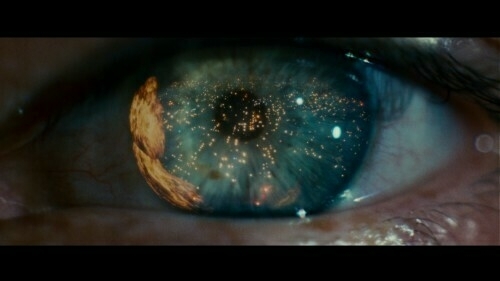Blog
The Latest on the BLADE RUNNER Sequel. It Doesn't Sound Awful?
Previously, I was very uncomfortable with the idea of a new film following in the footsteps of the absolutely amazing Blade Runner. I even posted as such, when the rumor was reported that a new film was coming.
But, now I sit in a slightly different position.  Ridley Scott, director and driving creative force behind the original Blade Runner is back in charge here.  Seeing what he’s done with the Alien prequel (but not quite) Prometheus makes me feel as if there is a distinct possibility of this working out, and well.
Then, late last week, Alcon (the production company behind the film) made a very unique announcement. Â Hampton Fancher, the man behind the original screenplay, will be developing the story for this sequel. Â I’ve added the full press release to the end of this post for proper reference.
So, you have all of the original eggs in the basket, for a film that will be taking place after the original Blade Runner. What else could make it interesting? How about a female lead.
Sayeth Ridley to The Daily Beast:
I started my first meetings on the Blade Runner sequel last week. We have a very good take on it. And we’ll definitely be featuring a female protagonist.Huh. All of the right creative talent. Presumably a new character as the lead.  Could be the Prometheus to Blade Runner's Alien.  This might just work out. I remain tentative, but this really could work out.  Lets see how this develops.
LOS ANGELES, CA, MAY 17, 2012—Hampton Fancher is in talks to reunite with his “Blade Runner" director Ridley Scott to develop the idea for the original screenplay for the Alcon Entertainment, Scott Free, and Bud Yorkin produced follow up to the ground-breaking 1982 science fiction classic, it was announced by Alcon co-founders and co-Chief Executive Officers Broderick Johnson and Andrew Kosove.The filmmakers are also revealing for the first time that the much-anticipated project is intended to be a sequel to the renowned original. The filmmakers would reveal only that the new story will take place some years after the first film concluded.
The three-time Oscar-nominated Scott and his “Blade Runner" collaborator Fancher originally conceived of their 1982 classic as the first in a series of films incorporating the themes and characters featured in Philip K. Dick’s groundbreaking novel “Do Androids Dream of Electric Sheep?“, from which “Blade Runner" was adapted. Circumstances, however, took Scott into other directions and the project never advanced.
Fancher, although a writer of fiction, was known primarily as an actor at the time Scott enlisted him to adapt the Dick novel for the screen. Fancher followed his “Blade Runner" success with the screenplays, “The Mighty Quinn" (1989) and “The Minus Man" (1999). He has continued to write fiction throughout his career.
Scott also will produce with Alcon co-founders and co-Chief Executive Officers Broderick Johnson and Andrew Kosove as well as Bud Yorkin and Cynthia Sikes Yorkin. Frank Giustra and Tim Gamble, CEO’s of Thunderbird Films, will serve as executive producers.
The original film, which has been singled out as the greatest science-fiction film of all time by a majority of genre publications, was selected for preservation in the United States National Film Registry by the Library of Congress as being “culturally, historically, or aesthetically significant.“ The film was selected for preservation in the United States National Film Registry in 1993 and is frequently taught in university courses. In 2007, it was named the 2nd most visually influential film of all time by the Visual Effects Society.
State Kosove and Johnson: “It is a perfect opportunity to reunite Ridley with Hampton on this new project, one in fact inspired by their own personal collaboration, a classic of cinema if there ever was one.“
Released by Warner Bros. almost 30 years ago, “Blade Runner" was adapted by Fancher and David Peoples from Philip K. Dick’s groundbreaking novel “Do Androids Dream of Electric Sheep?“ and directed by Scott following his landmark “Alien.“ The film was nominated for two Academy Awards (Best Visual Effects, and Best Art Direction). Following the filming of “Blade Runner,“ the first of Philip K. Dick’s works to be adapted into a film, many other of Dick’s works were likewise adapted, including “Total Recall,“ “A Scanner Darkly,“ “Minority Report,“ “Paycheck,“ and the recent “The Adjustment Bureau,“ among others.
Tuesday May 22, 2012
